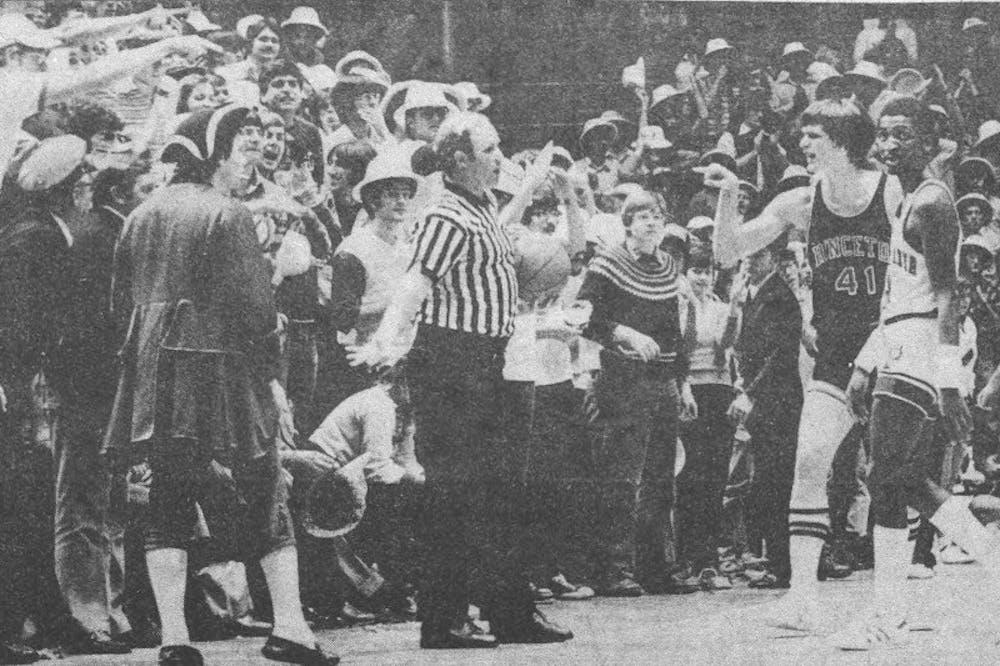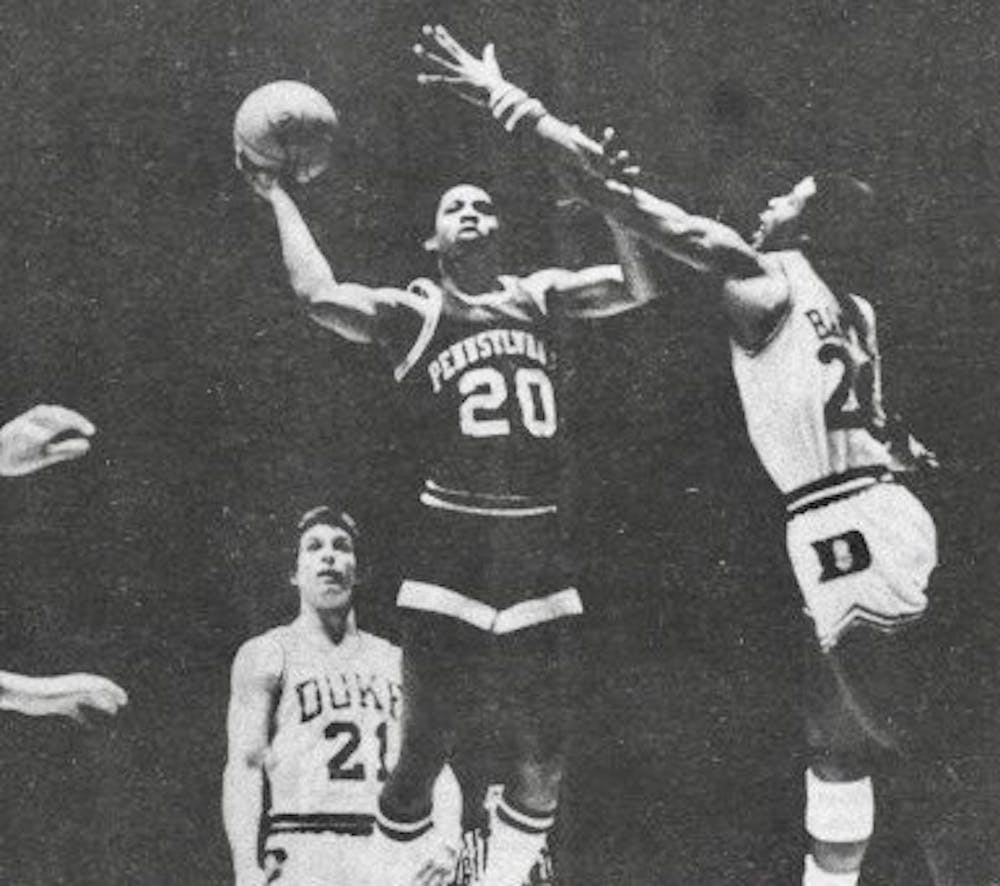
The year is 1980. Penn men’s basketball is in the midst of one of its most successful eras. Having won back-to-back titles, the lights were shining extremely bright on these Quakers.
Their deep NCAA tournament run the year before, only to be stopped by Magic Johnson and Michigan State, had put this team in the national collegiate basketball conversation.
Although they lost four of their five starters to graduation, there were immense expectations for the Red and Blue to win their 10th Ivy League title in fourteen years. Having lost many star players including Tony Price, the 1980 team was extremely young, with only one senior, James Salters. However, this Quakers team continued on the tradition that was started before them.
With tournament experience, Salters led the team in scoring and assists, garnering first-team All-Ivy and All-Big 5 selections. Another bright spot on this team was freshman (and eventual co-rookie of the year) forward Paul Little, who finished second in scoring behind Salters. This freshman-senior duo led the Red and Blue to win eleven of their fourteen Ivy League games, finishing with an overall 17-12 record.
Penn started its season with a tough schedule. Opening the season at Wake Forest, the Red and Blue trailed for much of the game, ultimately losing by 30 points. After losing the next game to Davidson, the Quakers traveled to No. 2 Duke for a highly anticipated game. The Quakers dropped to 0-4, albeit at the hands of one of the most outstanding teams of that year.

After Christmas break, Penn played Princeton at home, continuing the long rivalry between the Tigers and Quakers. This game was extremely competitive from the outset, with the Quakers leading by three at halftime. As the lead continued to bounce back and forth, Penn started to break away, ending with a 58-42 win.
With the confidence of this victory, Penn looked towards its next three games, all of which were against Big 5 opposition. After a convincing 59-46 win over Temple at home, Penn traveled to the Spectrum Center (the former home of the 76ers) to take on Villanova. Playing a formidable Wildcats squad that was eventually seeded eighth in the NCAA Tournament, the Red and Blue fought hard. However, they were ultimately unable to prevail, dropping the game 65-51.
Another Big 5 loss to St Joseph’s in triple overtime the following week put the Red and Blue in a hole. Although they had a losing record at this point, they looked towards Ivy League play. Having won the league the previous year, the Red and Blue were, again, solidly positioned to defend their title. Although they had lost four of their senior starters, their young squad led by Salters proved to be extremely successful.
Penn won all five of their next Ivy League games, improving their record to 6-0 in the Ancient Eight. After dominating Dartmouth, Cornell, Columbia, and Harvard, the Red and Blue traveled to Princeton for their second meeting with their only equal in the league that year. After a chaotic ending to regulation, the Quakers lost in overtime, 78-69.
This loss to the Tigers rattled the Red and Blue who dropped their next game to Columbia in overtime as well. However, two days later, the Quakers again found their groove, beating Cornell by 19 points on the road.
With this result, Penn and Princeton officially tied the Ivy League and shared the title. However, in one last playoff game to determine NCAA Tournament seeding, the Red and Blue narrowly beat Princeton, winning the game by a score of 50-49 and securing another postseason berth.
Having gone to the Final Four the year before, the Quakers were again positioned to excel in the NCAA tournament. A convincing 62-55 win in the first round over No. 5 Washington State had people thinking again that this Penn team could go all the way. These thoughts were squandered, though, in Penn's next game against Duke where the Quakers ultimately lost by 10 points.
Overall, this Quakers team illustrated the strength of Penn’s men's basketball program, especially under coach Bob Weinhauer. Their depth and young talent are a testament to this program’s rich history and allowed Penn to continue with more Ivy League championships in the future.
The Daily Pennsylvanian is an independent, student-run newspaper. Please consider making a donation to support the coverage that shapes the University. Your generosity ensures a future of strong journalism at Penn.
Donate






